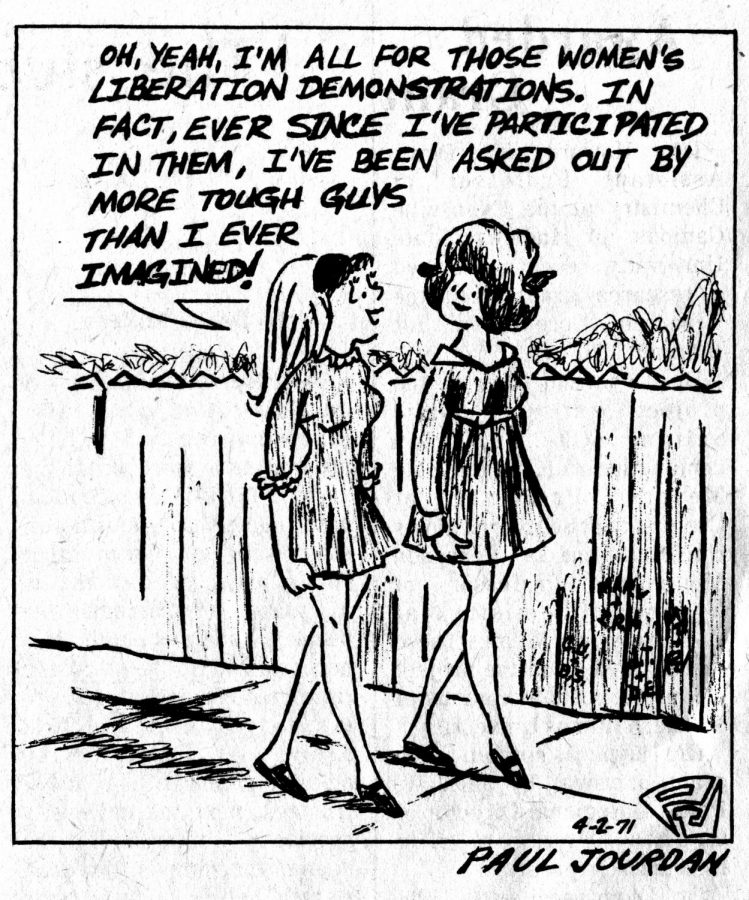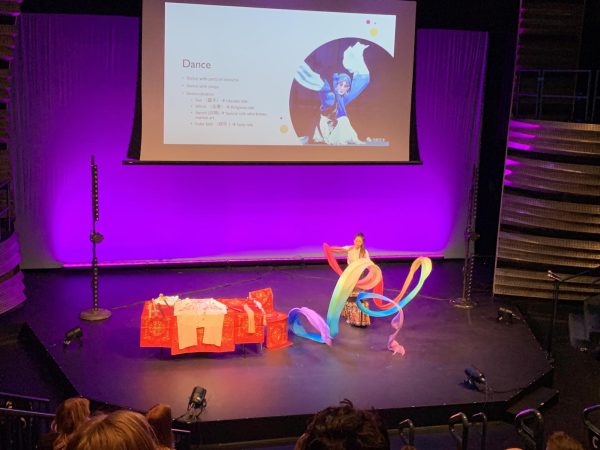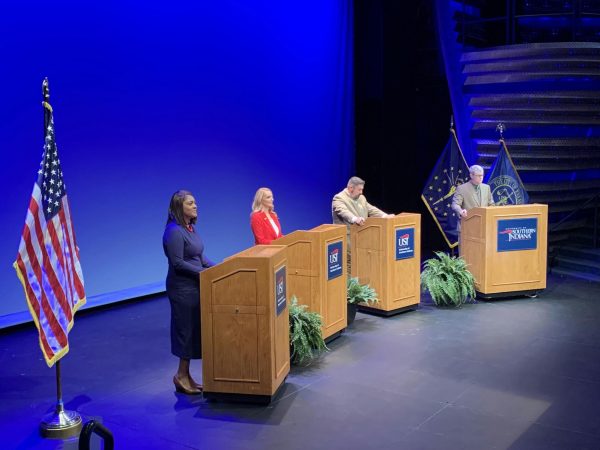From the Archive: Women’s Liberation
Cartoon by: Paul Jourdan/Shield Archives
Graphic accompanying the two stories on women’s liberation April 2, 1971.
October 14, 2021
Message from 2021-2022 Editorial Staff:
The first issue of The Spartan Shield was published Oct. 15, 1968. The Shield Staff is celebrating The Shield’s 53rd birthday by digitally republishing stories from The Shield Archive. The two following stories were published side-by-side on April 2, 1971. The two stories written by the 1971 Shield staff show the conflicting ideas of women’s rights and independence in the 1970s. The following stories have not been edited by the 2021-2022 staff.
First Story from The Shield Archive: OPINIONS ON WOMEN’S LIBERATION

MARION HESLER, Asst. Prof. of English — Although I disagree with women’s liberation in its extreme forms, I feel women should be free to pursue her own interests, such as education. Women are different from men, emotionally, physically, and psychologically and they should realize this.”

RALPH KENT, Sr. at ISUE — women shouldn’t try to invade male organizations such as male colleges, fraternities, or men’s clubs. They should have an equal chance for jobs if they are qualified, but shouldn’t do things to obstruct the daily lives of others, by demonstrating, etc.
NANCY POSIN, Jr. at ISUE — Women should maintain their femininity, yet they should not be treated inferior job-wise, but should be looked upon as equal. Because of the structure of our society and the stress placed on higher learning, there is no alternative but to give women equal job opportunities. If we ban an organization like Women’s Lib, we are saying the woman’s place is in the home. But that’s not where all women want to be.
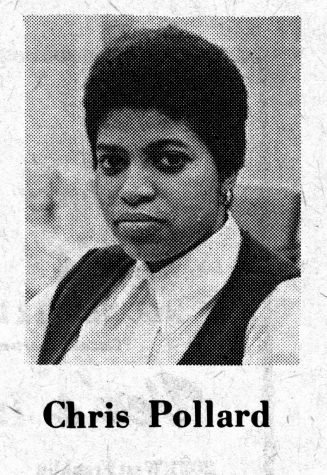
CHRIS POLLARD, Jr. ar ISUE — I think Women’s Lib is a big farce. I don’t mind being thought of as feminine by men. I don’t want equal rights with men because I don’t want to be drafted and go fight in Vietnam. Do you?

SHARLENE TAYLOR, Sr. at ISUE — There are certain parts of the movement that I am for and some that I am against. Even though I agree with the Ban the Bra movement, I still like to have a guy hold the door open for me and treat me like a lady. I think women should have equal pay for jobs that she is capable of. But women must admit there are certain jobs she can’t do as well as a man.
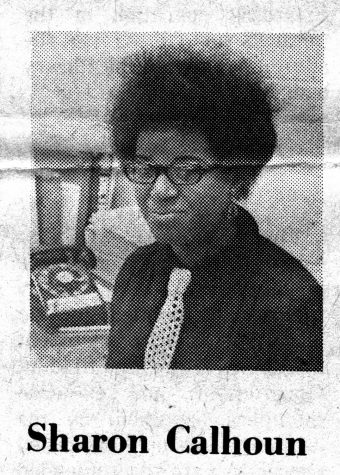
SHARON CALHOUN, Sec. of Humanities Division — “There are certain jobs that weren’t meant for women, such as various factory jobs, etc. Women were meant to be feminine.”

MIKE HERRON, Soph. at ISUE — “I think it’s silly. Why would women want to be liberated when they don’t have it bad now?”
DEBBIE MILLER, Jr. at ISUE — Any person should not be judged according to his own capabilities and personality. The Women’s Lib movement should be more concerned with the advancement of people rather than with one particular sex.

JOHN DEEM, Registrar — Anyone with the same educational qualifications and capabilities should be able to get job positions regardless of their sex, color or creed.
Second Story from The Shield Archive: Feminist Groups Demand equality
New York, N.Y. – (I.P.) –
Beginning with 1971-72 all Columbia University Catalogs and admissions brochures will include a note such as
• All qualified applicants receive consideration for admission without regard to race, creed, color, sex or
national origin.”
All-male Columbia College, one of several schools with such a sentence in current publications, will leave out the word ” sex.”
In a recent memo, Vice President Warren Goodell has suggested that deans and department chairmen prepare to prove that admissions and financial-aid policies are nondiscriminatory.
” We anticipate a challenge of sex discrimination in the near future,” he wrote.
Several other universities have already been investigated by HEW after complaints by feminist groups. Columbia also reports that Walter Adams and Abram Jaffe of the University’s Bureau of Applied Social! Research has come out with a strong warning to open enrollment advocates.
Reporting on a national study of about 1,600 selected high-school seniors, the sociologists stated that without great care ”disappointment and frustration consequent to widespread dropout might outweigh benefits for the students who would survive and graduate.”
The equalitarian impulse alone, however admirable, is insufficient justification for radical change in higher education.”

